Musical Interlude
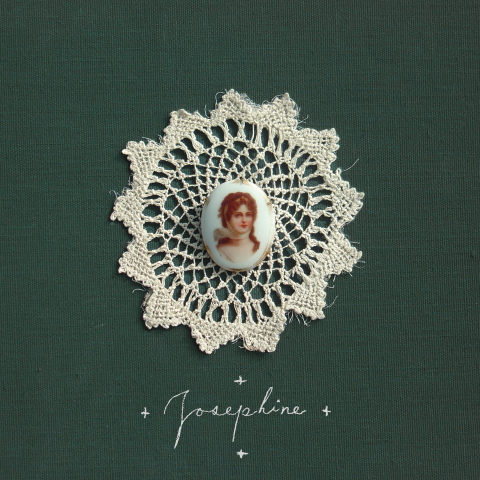
This hot tip comes from Alec Niedenthal. Apparently, indie rock demi-god Jason Molina–of Songs:Ohia and Magnolia Electric Co. fame–has already got a followup record to this summer’s striking, and (I thought) underrated, Josephine. The new record is a straight-up collaboration with Will Johnson of Centro-matic (and the current drummer for Monsters of Folk). Molina & Johnson will be out November 3, from Secretly Canadian. There’s a biggish interview with Molina at Pitchfork, which contains all this information and a whole lot more, including that they’re planning to tour for the record.
Could this day get any sweeter?
Friday Frustration
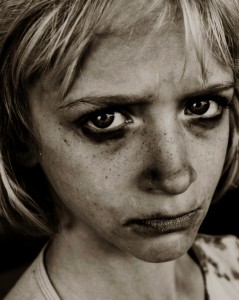
A while back, Blake Butler posted a brief snippet that said something like, “It’s not okay to like everything,” and I’ve been thinking that statement through since. A series of random events over the past few weeks has me thinking the corollary is also true. It is not okay to hate everything, either. Don’t get me wrong. I don’t like everything. I’m not an optimist or a perky individual. I have a bitch streak a mile long. It just seems some people are never happy or satisfied with anything—and those people are completely unwilling or unable to appreciate things that do not fit into the constraints of what they like or think is good [writing, art, design, living, whatever] or have become accustomed to. I’m really burnt out on relentless cynicism and negativity and snarky judgment. When someone either loves or hates everything, I find it hard to take them seriously or give their opinions much credence. Isn’t criticism more effective when used judiciously?
Friday Ponderable
httpv://www.youtube.com/watch?v=gIPfqON1-L4
If I get a sense of the uncanny valley when I watch Lancelot Link, Secret Chimp, is this at least anecdotal evidence for evolution?
Any Wonder We Tried Gin

“Wystan Hugh Auden took the martini seriously,” wrote Rosie Schaap for the Poetry Foundation a few weeks ago. Yeah! That’s an Auden I can get behind! The kind who would write, “We must drink a lot of gin or die,” and then later change it to “We must drink a lot of gin and die,” before finally settling on, “This guy right here…this guy’s…YOU DON’T KNOW ME, YOU DON’T EVEN”
Anyway, Schaap’s search for the Auden martini set me to thinkin’: what other poets have had trademark martinis? I found the answer in What Other Poets Have Had Trademark Martinis?: A Book Which Answers The Question That We Asked in the Main Part of the Title, Before The Colon (FSG, 1987). This book totally exists, so fact-checking me on it would be a pitiable waste of your time. Below are just a small sample of the more intriguing entries, though if you have any others, you should post them. I mean, why wouldn’t you trust poets to give you alcohol-related recommendations? That would be like not trusting poets to give you divorce lawyer-related recommendations! Crazy!
Friday Fuck Books, Let’s Dance
It’s evening here on the West Coast. Almost time to go home.
httpv://www.youtube.com/watch?v=C0CmIRODuI4
httpv://www.youtube.com/watch?v=uaVGjEq_huM
READ MORE >
New York: Is something happening here?
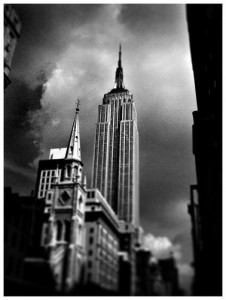 A writer friend of mine in New York recently packed up and went to live in a cabin in the Amazon rain forest because he wanted to keep the overhead low while he was finishing a novel. Another writer I know went to Argentina to live with her novelist boyfriend where they both live cheap. I could keep listing examples, but just know that there are more.
A writer friend of mine in New York recently packed up and went to live in a cabin in the Amazon rain forest because he wanted to keep the overhead low while he was finishing a novel. Another writer I know went to Argentina to live with her novelist boyfriend where they both live cheap. I could keep listing examples, but just know that there are more.
Yet there are so many reasons to live in New York all the same. For one thing there are a lot of writers here and crazy shit happens. (One example: I got to meet Werner Herzog & hear him speak yesterday.) But there is the money issue, of course. Rent is high in a lot of places & if you eat out a lot you’re going to go broke. On the other hand there are a lot of good jobs for a writer to have here, though landing one of those jobs can be an issue.
While he was on his book tour someone asked Tao Lin if he thought there is “something happening on the east coast literary scene that is a little exciting, as opposed to [California.]” I don’t know what Tao said, but I wonder what y’all think of New York as a place for a writer to be. What is this exciting thing? Does it exist at all? I think I live here because there is no reason to have a car and I fear and loathe being in cars. Also, I have a relatively affordable set-up and can’t think of anywhere better to be…. thoughts? Alternative city suggestions? Damning accusations?
Editing INFINITE JEST
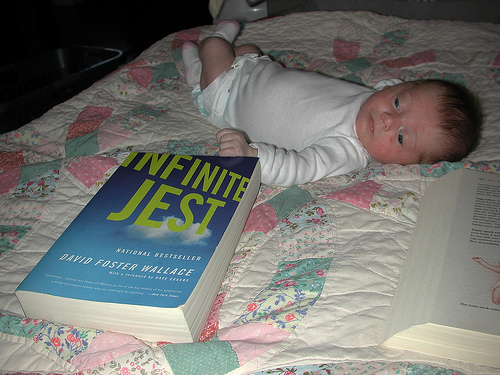 Again, some bits from the Sonora Review DFW Tribute Issue, which I’m still reading through; this time I’ve excerpted Rick Moody’s interview of Michael Pietsch, who edited Infinite Jest while at Little, Brown. The whole interview is interesting, as Pietsch talks about how he acquired IJ, how he and Wallace worked together to edit it, and how ‘it felt as if [they’d] published a book that mattered, and that would last.’ Pietsch calls it ‘one of the great thrills’ of his working life.
Again, some bits from the Sonora Review DFW Tribute Issue, which I’m still reading through; this time I’ve excerpted Rick Moody’s interview of Michael Pietsch, who edited Infinite Jest while at Little, Brown. The whole interview is interesting, as Pietsch talks about how he acquired IJ, how he and Wallace worked together to edit it, and how ‘it felt as if [they’d] published a book that mattered, and that would last.’ Pietsch calls it ‘one of the great thrills’ of his working life.
Of the editing process, Pietsch says that ‘every decision was David’s. I made suggestions and recommendations and tried to make the reasons for them as clear as possible. But every change was his.’
After the jump, you’ll find some responses Wallace made to Pietsch’s requests for cuts.
Good Advice + 2 Douchebags
Jacques Derrida
Alejandro Jodorowsky
2 Douchebags
What is a happy story?
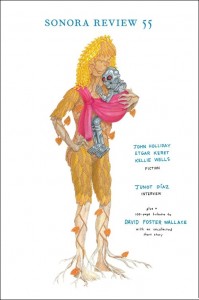 Last Tuesday afternoon, someone in my Introduction to Fiction class asked me if we would ever read a ‘happy’ story this semester, and I didn’t know how to answer. I didn’t feel comfortable saying ‘no’ or ‘yes,’ because I have a hard time understanding what is a happy story and what is a sad story. For those who don’t know, all of our readings have come from The Anchor Book of New American Short Stories, and we’re about to start reading My Happy Life by Lydia Millet for the novel portion of the course. I like to think that the kinds of things we’re reading are somewhat varied; however, another student disagreed, and criticized the selections Ben Marcus had made. The student pointed at what Marcus says in the introduction (“What I found in my reading was an amazing range of styles, beliefs, methods, ideologies, and instincts.”) and commented that despite the differences Marcus intended to show, the stories in the anthology, in the student’s opinion, are all generally sad and depressing. And if we categorize stories that way, and if we assume that we share the student’s definition of sad, then there isn’t much variety in that, right?
Last Tuesday afternoon, someone in my Introduction to Fiction class asked me if we would ever read a ‘happy’ story this semester, and I didn’t know how to answer. I didn’t feel comfortable saying ‘no’ or ‘yes,’ because I have a hard time understanding what is a happy story and what is a sad story. For those who don’t know, all of our readings have come from The Anchor Book of New American Short Stories, and we’re about to start reading My Happy Life by Lydia Millet for the novel portion of the course. I like to think that the kinds of things we’re reading are somewhat varied; however, another student disagreed, and criticized the selections Ben Marcus had made. The student pointed at what Marcus says in the introduction (“What I found in my reading was an amazing range of styles, beliefs, methods, ideologies, and instincts.”) and commented that despite the differences Marcus intended to show, the stories in the anthology, in the student’s opinion, are all generally sad and depressing. And if we categorize stories that way, and if we assume that we share the student’s definition of sad, then there isn’t much variety in that, right?
But, and this is my question, are there really happy stories and sad stories? If they exist, how do you define one or the other, or is it even a matter of one or the other?
